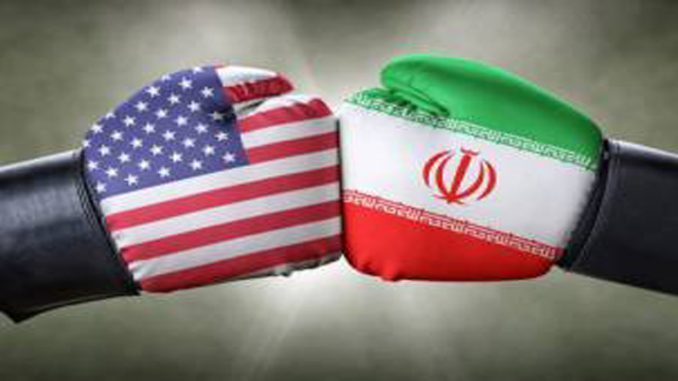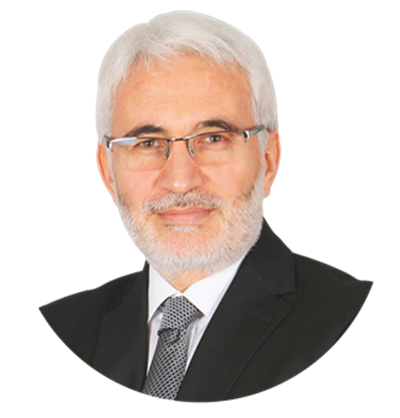
The United States will unilaterally declare that United Nations sanctions targeting Iran are once again in force, breaking with almost every other UN Security Council (UNSC) member, including longtime allies!
Virtually all UN sanctions on Iran will come back into place this weekend at 8pm Eastern Time (00:00 GMT) on Saturday the 19th,” said Elliott Abrams, the Trump administration’s special representative for Iran.
The move, however, risks increasing Washington’s diplomatic isolation while also stoking international tensions in the lead-up to the highly anticipated US election in November.
Thirteen of the 15 UNSC members, including Britain, France and Germany, say Washington’s move is void and diplomats believe few countries are likely to reimpose the measures, which were lifted under a 2015 deal between world powers and Iran.
The standoff started in mid-August when US President Donald Trump’s administration suffered a resounding defeat at the UN Security Council after it tried to extend an embargo on conventional weapons being sent to Tehran.
Imposed in 2007, the embargo is due to expire on October 18, as agreed under the nuclear deal among Iran, Russia, China, Germany, Britain, France and the US that seeks to prevent Tehran from developing nuclear weapons in return for sanctions relief.
Following the failure last month to extend the arms embargo at the UNSC, US Secretary of State Mike Pompeo made an unusually strong attack on allies France, Britain and Germany, accusing them of “siding with Iran’s ayatollahs”. On August 20, he announced a controversial move known as a “snapback”, which aims to re-establish all sanctions against Iran a month later.
The sanctions were lifted in 2015 when Iran signed on to the nuclear deal, formally known as the Joint Comprehensive Plan of Action (JCPOA).
However, Trump said the landmark accord, negotiated by his predecessor Barack Obama, was insufficient. In 2018, the Republican president unilaterally withdrew the US from the JCPOA and went on to renew and even strengthen Washington’s bilateral sanctions.
At the moment, the US is insisting it is still a participant in the agreement that it stormed out of, but only so that it can activate the “snapback” option.
Virtually every other member of the Security Council disputes Washington’s ability to execute this legal pirouette, and the council has not taken the measure any further.
Britain, France and Germany told the UNSC on Friday that UN sanctions relief for Iran would continue beyond September 20.
“We have worked tirelessly to preserve the nuclear agreement and remain committed to do so,” the UN envoys for the three countries said in a letter to the council, seen by Reuters news agency.
Amid the showdown, the Trump administration is behaving as if the international sanctions were coming back, while the rest of the international community continues to act as if nothing has changed.
So is this a symbolic gesture designed to recall Washington’s hard line against Tehran, or are there more concrete measures in the offing?
The Americans will “pretend that they have activated the snapback and that therefore the sanctions are back up and running,” one European diplomat told the AFP news agency. But “this action will have no legal foundation” and therefore “cannot have legal consequences”.
“I don’t see anything happening,” said another UN diplomat. “It would be just a statement. It’s like pulling a trigger and no bullet coming out.”
Another diplomat deplored the “unilateral” US act, saying that “Russia and China are sitting, happy, eating popcorn, watching” the “huge destabilising fallout” between Washington and its European partners.
The US is, however, demanding that the arms embargo be prolonged “indefinitely” and that numerous other activities linked to Iran’s nuclear and ballistic programmes be subject to international sanctions.
Pompeo said this week the US will “do all the things we need to do to make sure that those sanctions are enforced.
“We are going to act in a way – and we have acted in a way – that will prevent Iran from being able to purchase Chinese tanks and Russian air defence systems,” he said.
“We expect every nation to comply with UN Security Council resolutions – period, full stop,” he added. That is where the issue risks stoking up international tensions.
Trump plans to issue an executive order allowing him to impose US sanctions on anyone who violates the UN arms embargo on Iran, sources told Reuters, in a bid to reinforce the US assertion that the measure has been extended indefinitely beyond October 18.
The sources, who spoke on condition of anonymity, said on Thursday the order was expected in the coming days and would allow Trump to punish foreign actors – US entities are already barred from trading weapons with Iran – by depriving them of access to the US market.
The Biden factor
Six weeks out from the US election, Trump could also use his address to the General Assembly on Tuesday to “try and create a shock by announcing some sort of financial penalty on the UN because of his dissatisfaction over the snapback process”, said Richard Gowan, of the International Crisis Group.
Three senior Iranian officials have told Reuters that Iran’s leadership is determined to remain committed to the nuclear deal, hoping that a victory by Trump’s political rival, Joe Biden, in the November 3 polls will salvage the crumbling pact.
Biden, who was vice president when the Obama administration negotiated the accord, said he would rejoin the deal if Iran first resumed compliance.
“If Iran returns to strict compliance with the nuclear deal, the United States would rejoin the agreement and build on it, while working with allies to push back on Iran’s destabilising actions,” Biden campaign spokesman Andrew Bates said.
SOURCE: AL JAZEERA AND NEWS AGENCIES



